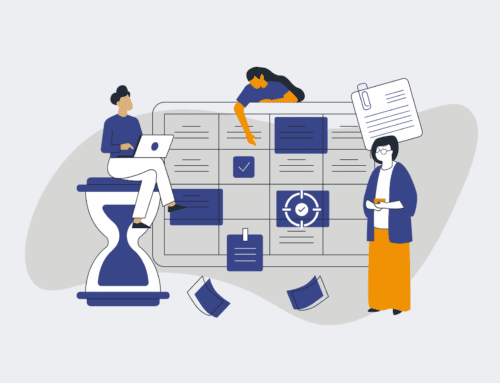AI for Small Businesses: Making Smart Onboarding Accessible and Affordable
In the competitive landscape, small businesses often face a unique dilemma: the need for robust, efficient processes to scale, coupled with limited resources to implement them. This challenge becomes particularly acute in human resources, especially during the critical onboarding phase. Traditional onboarding, laden with paperwork, repetitive training, and inconsistent communication, can be a drain on time and budget, impacting new hire retention and productivity from day one. But what if there was a way to make sophisticated, intelligent onboarding not just a possibility, but an accessible and affordable reality for small businesses? The answer lies in the strategic application of Artificial Intelligence.
For too long, advanced HR tech has been perceived as the exclusive domain of large enterprises with deep pockets and dedicated IT departments. This perception is rapidly changing. AI, when integrated thoughtfully, offers small businesses a powerful toolkit to transform their onboarding experience without breaking the bank or requiring extensive technical expertise. It’s about leveraging smart automation to do the heavy lifting, allowing human teams to focus on the human elements of welcoming new talent.
Beyond Paperwork: Redefining the Onboarding Journey with AI
Consider the typical onboarding checklist: stacks of forms, compliance documents, benefits enrollment, IT setup, and an often overwhelming deluge of initial information. Each step, while necessary, consumes valuable time from HR, managers, and the new hire themselves. AI can streamline these processes dramatically. Automated document generation and smart form pre-filling, for instance, eliminate manual data entry errors and significantly reduce the time spent on administrative tasks. AI-powered chatbots can answer frequently asked questions about company policies, benefits, or office logistics, providing instant support 24/7 without burdening HR staff.
This isn’t merely about digitizing old processes; it’s about infusing intelligence. Imagine a system that automatically identifies the specific compliance documents required based on a new hire’s role and location, then guides them through the completion process with clear, context-sensitive instructions. This level of personalized, intelligent assistance ensures accuracy, boosts compliance, and frees up your valuable HR team from monotonous, low-value work.
Personalized Learning Paths and Proactive Integration
One of the biggest challenges for new hires is navigating the sheer volume of information and training required to become fully productive. A one-size-fits-all approach often leads to disengagement and extended ramp-up times. AI enables the creation of dynamic, personalized learning paths tailored to each employee’s role, department, and existing skill set. AI algorithms can analyze a new hire’s profile and recommend specific training modules, resources, and even internal mentors, ensuring they receive the most relevant information at the right time.
Beyond formal training, AI can facilitate social integration. By suggesting relevant internal communities, interest groups, or colleagues with shared backgrounds, AI can help new employees feel connected and integrated faster. This proactive approach to cultural assimilation is crucial for retention, especially in remote or hybrid work environments where organic interactions might be limited. It helps foster a sense of belonging, which is invaluable for long-term employee commitment.
Affordability and Accessibility: The Small Business Advantage
The beauty of modern AI solutions for small businesses lies in their accessibility. Many powerful AI tools are now available through low-code/no-code platforms, making them affordable and implementable without the need for a dedicated IT team or a massive upfront investment. Tools like Make.com, when combined with specialized AI services, can orchestrate complex onboarding workflows, connecting disparate systems (your CRM, HRIS, communication tools) into a seamless, intelligent process. This connectivity creates a “single source of truth” for employee data, reducing redundancies and ensuring consistency across all touchpoints.
For example, when a new hire accepts an offer, an automated workflow triggered by AI can initiate background checks, send welcome emails, provision IT accounts, schedule initial meetings with key team members, and even order office equipment – all without human intervention after the initial setup. This not only saves immense administrative hours but also ensures a consistent, professional, and positive experience for every new employee, reflecting positively on your brand and employer value proposition.
The return on investment for smart AI onboarding is clear: reduced administrative overhead, faster time-to-productivity for new hires, improved retention rates, and a more engaged workforce. Small businesses that embrace AI for onboarding aren’t just adopting technology; they’re strategically investing in their future growth and operational efficiency. They are turning a traditionally labor-intensive process into a competitive advantage, proving that intelligent, sophisticated HR solutions are indeed within reach.
At 4Spot Consulting, we understand these challenges intimately. Our OpsMap™ diagnostic process is designed to uncover precisely where AI and automation can deliver the most impact in your HR and recruiting operations, turning perceived complexities into streamlined efficiencies. We believe that by eliminating low-value work, businesses can unlock their high-value employees’ full potential, ultimately saving you 25% of your day.
If you would like to read more, we recommend this article: The Intelligent Onboarding Revolution: How AI Drives HR Excellence and New-Hire Success







